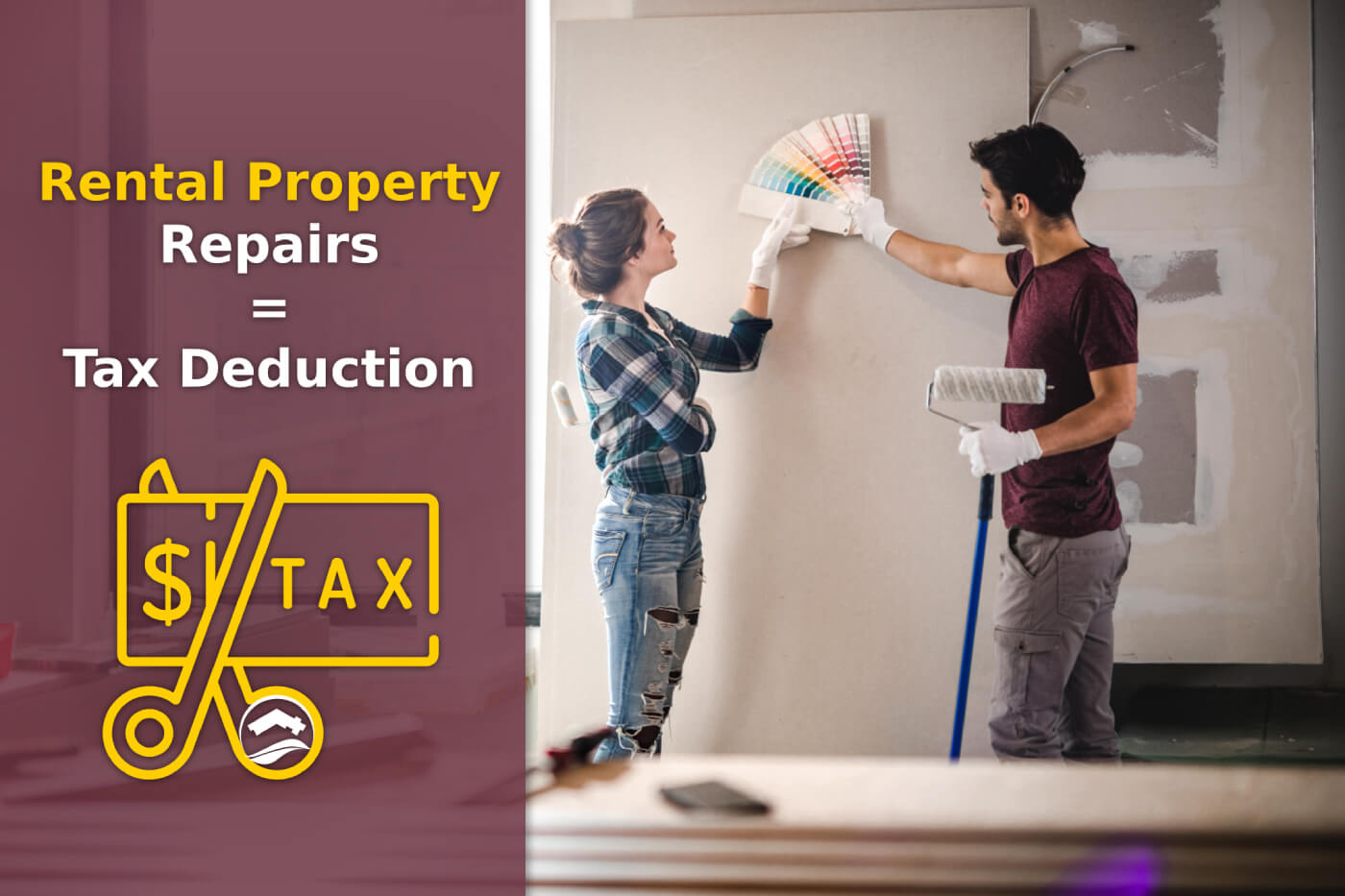Last Updated on January 7, 2025
Repairs and maintenance to your rental property are inevitable. But, did you know that repairs on rental property can be tax deductible?
So, what home improvements are eligible?
Here’s what you need to know if you’re a new landlord or if you’ve just had to make your first significant repair.
Are repairs on rental property tax deductible?
The answer depends on the country in which your property is located.
For example, some repairs on rental property and improvements in the UK specifically (such as replacing a laminate kitchen worktop with a granite worktop) are not deductible but you can take advantage of “Wear and Tear”, now called the replacement of domestic items relief (RDIR).
If you are the landlord, all your rental earnings must be reported on your tax return and some expenses can be deducted from your rental income.
Changes you make to your real estate might range from simple and affordable to substantial and expensive.
However, when it comes to taxes, there is a significant distinction between house repairs and improvements.
While in most countries, you can deduct repairs in full on your current-year tax return, you cannot deduct the entire cost of improvements right away.
It will have to be done gradually over time.
From a tax perspective, repairs are considered revenue expenditure, while improvements are considered capital expenditure.
In both circumstances, you can save money – sometimes a lot of money. That’s why understanding the distinction between them is important.
So, are rental property repairs tax deductible – YES!
But you need to be careful with your documentation and specific tax return filing details.

What is considered a repair on rental property?
A repair is considered any change that returns home to its original state, and it’s typically inexpensive and small.
A home repair, for tax purposes, is an action that keeps your home in good shape but does not make it significantly better than it was before.
Most repairs do not add considerable value to the property or extend its life, they simply maintain the property in its current state.
In terms of taxes, repairs to a personal residence are not deductible.
The only way to claim all or a portion of the expenses of home repairs for your residence is if you rent it out and the amount is deducted from your rental income.
To be eligible for the deduction, the repair must be an acceptable sum based on the nature of the repair.
Which rental property repairs are tax-deductible?
Eligible expenses can differ from country to country, but typically include:
- replacing a broken window
- fixing leaks
- repainting your home
- fixing a gutter
- rot or damp treatment
- mending furniture
- cleaning masonry
- replacing roof tiles
- plastering
This is not an exhaustive list.
What is a home improvement?
Home improvement works can increase the value of a property significantly.
They will often increase the value of your property throughout time, not simply in the present year.
As a result, you cannot deduct the entire cost of, for example, a kitchen makeover, in a single year. You will instead claim progressive amounts over time, starting from the date of purchase or installation.
Which home improvements are tax-deductible?
Here is a list of home improvements tax-deductible. Some examples can include:
– adding a new roof/swimming pool
– installing a new heating/air-conditioning system
– a new driveway
– built-in appliances
– а new central air-conditioning
– an addition to the house
– a home security system
– storm windows
– an additional water heater
– an intercom system
– room additions
– plumbing upgrades and more
However, in the USA, for example, energy-efficient renovations (or installing an eco-friendly appliance), home improvements for medical care, and home office improvements for personal use are tax-deductible.
On the other hand, in most countries, home improvements can assist you in lowering the amount of taxes you must pay when you sell your house for a profit.

What about rental property depreciation?
The rental property’s value decreases year after year until they reach the end of their useful lives.
That’s usually (but not always) 27.5 years for real estate.
If you own a rental property, you may be entitled to deduct the depreciation on your tax return each year.
When a property is ready and available to rent, you can usually begin depreciating it.
However, the math isn’t straightforward. There are several methods for calculating depreciation on a rental property, which is why, if you’re a landlord, it’s a good idea to seek advice from a trained property tax advisor.
Our tax team can take care of your rental income tax return obligation and determine which deductions and home renovation tax credits you qualify for.
Bottom line
Real estate investment has always offered fantastic returns, as well as great home renovation tax credits and benefits.
Property taxes, which you pay each year, help to fund local schools and governments. That is the good news. The bad one is that little increases in property taxes can creep up on you, adding hundreds or thousands of dollars to your annual tax burden.
Here is what you can do if you want to take advantage of some of these important tax breaks:
- Lower your taxable gain
If you’ve lived in your home for a long time, and the local housing values have progressively risen throughout that time, a percentage of your gain on sale may be taxable. If this is the case, you can lower your taxable gain by including the improvements in the cost basis of the residence
- Stay organized
Make sure you keep track of all your expenses and keep all the payment documents and receipts for any home renovations you make
- Consult with an experienced tax professional
In addition, if you intend to take advantage of the tax benefits, you should always consult with an experienced tax professional who can advise you about all the deductions you can qualify for depending on the country you live in
Who can help?
If you own rental property and find filing income tax returns overwhelming, don’t worry – we’re here to help!
Our tax advisors will handle all the tax paperwork and make sure you get all the deductions you’re eligible for, helping you save on taxes.
Our services are available to non-resident and resident property owners in the following countries:
- France (non-residents)
- Germany (non-residents)
- Hungary (non-residents)
- Ireland (residents and non-residents)
- Poland (non-residents)
- Spain (non-residents)
- UK ( residents and non-residents)
- USA (residents and non-residents)
Got questions? Book a no-obligation consultation with our team.
Why PTI Returns?
- PTI Returns is part of CluneTech ( formerly known as Taxback Group), employing over 1,500 people in more than 20 countries worldwide. We specialize in rental property tax and have more than 20 years of experience completing international tax returns for property owners
- Last year, we submitted over 322,000 tax returns
- We have multilingual support via phone and email
- Our tax professionals can answer any questions you have about international property taxes and provide professional tax advice
A well-prepared property tax return professional from PTI Returns:
- Can provide expert tax advice and online tax return assistance
- Can assist you in taking advantage of all international tax agreements allowable expenses, and home renovation tax credits, allowing you to avoid paying too much tax on your rental income
- Can keep up with changes in legislation and ensure that you are tax-compliant in each relevant tax jurisdiction
- Can deal with language barriers with the local tax office
- Can make the filing process easy and fast
- Can help you file your online tax return and pay taxes online

